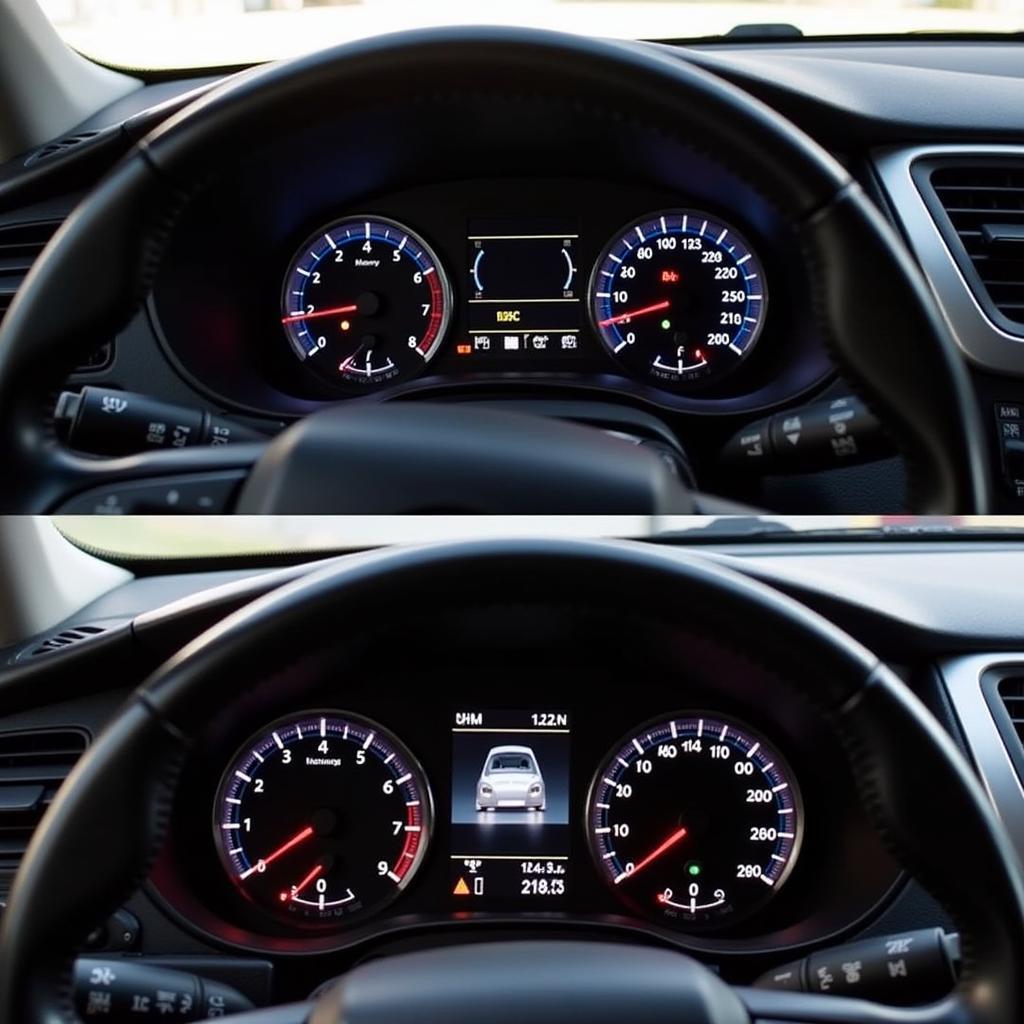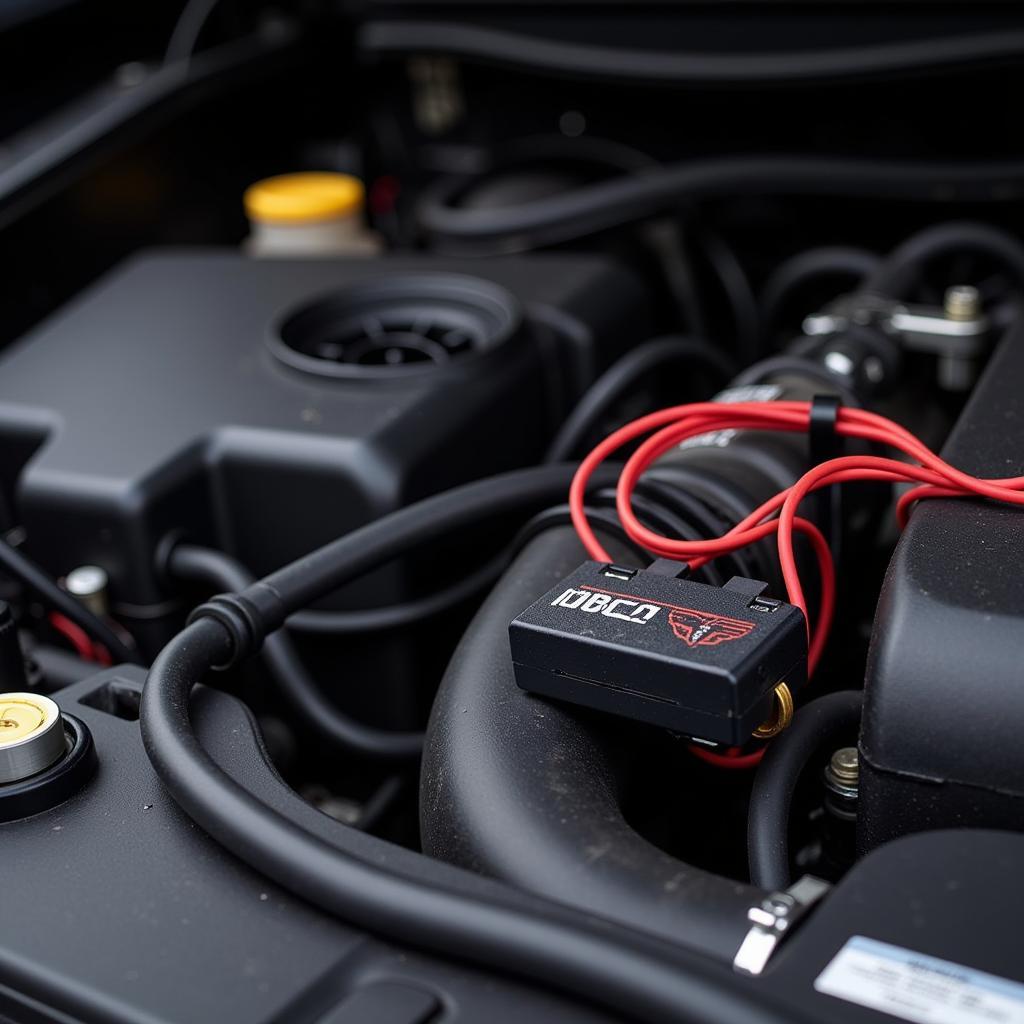Your cart is currently empty!

OBD2 Performance Tuning Chip Box: Saver Gas for Petrol Vehicles?
OBD2 performance tuning chip boxes are marketed as a quick and easy way to boost your petrol vehicle’s performance and fuel efficiency. But do these devices really live up to the hype, or are they too good to be true? This article delves into the ins and outs of OBD2 tuning chip boxes, exploring their potential benefits and drawbacks to help you make an informed decision.
What is an OBD2 Performance Tuning Chip Box?
An OBD2 performance tuning chip box is a small electronic device that plugs into your vehicle’s OBD2 diagnostic port, typically located under the dashboard. It’s designed to modify the engine control unit (ECU) parameters, adjusting factors such as fuel-to-air ratio, ignition timing, and boost pressure to enhance performance and potentially improve fuel economy.
These devices often claim to deliver noticeable horsepower and torque gains while reducing fuel consumption. They are marketed as an affordable alternative to traditional engine tuning methods, such as ECU remapping.
How Does an OBD2 Tuning Chip Box Work?
OBD2 tuning chip boxes work by intercepting and altering the signals sent between the ECU and various engine sensors. By modifying these signals, the chip box can trick the ECU into adjusting engine parameters to operate outside its factory settings.
For example, the chip box might send a signal to the ECU indicating a leaner fuel-to-air mixture than what’s actually present. This can lead to a slight increase in power output, but it may also result in increased emissions and potential engine damage if not carefully calibrated.
The Potential Benefits of OBD2 Tuning Chip Boxes
- Increased Horsepower and Torque: Some users report noticeable improvements in horsepower and torque after installing an OBD2 tuning chip box. However, the actual gains vary depending on the vehicle, engine, and chip box quality.
- Improved Throttle Response: OBD2 tuning chip boxes can sometimes enhance throttle response, making the vehicle feel more responsive to driver inputs. This can be particularly noticeable in vehicles with electronic throttle control systems.
- Potential Fuel Savings: While not always guaranteed, some users experience marginal improvements in fuel economy with an OBD2 tuning chip box, especially when combined with conservative driving habits.
 OBD2 Tuning Chip Box Dashboard
OBD2 Tuning Chip Box Dashboard
The Drawbacks and Risks of OBD2 Tuning Chip Boxes
- Limited Customization and Control: Most OBD2 tuning chip boxes offer limited customization options compared to professional ECU remapping. This means you might not be able to fine-tune the settings to your specific driving style or vehicle modifications.
- Potential Engine Damage: Installing an OBD2 tuning chip box that’s not properly calibrated for your vehicle can put excessive strain on engine components, potentially leading to premature wear and tear or even catastrophic engine failure.
- Voiding Your Vehicle’s Warranty: Using an aftermarket device like an OBD2 tuning chip box can void your vehicle’s warranty, especially if it’s determined to have caused damage to the engine or other components.
- Unrealistic Claims and Marketing: Many manufacturers of OBD2 tuning chip boxes make exaggerated claims about performance gains and fuel savings. It’s essential to approach these claims with a healthy dose of skepticism and conduct thorough research before purchasing.
Expert Insights
“While OBD2 tuning chip boxes might seem tempting as a quick and affordable performance enhancement solution, it’s crucial to understand the potential risks involved,” says automotive engineer, John Miller. “These devices often lack the sophistication and precision of professional ECU remapping, which can lead to suboptimal engine performance and potential damage.”
Conclusion
OBD2 performance tuning chip boxes can be an enticing option for those looking for a simple and cost-effective way to enhance their vehicle’s performance. However, it’s essential to weigh the potential benefits against the risks and drawbacks before making a purchase. Remember, if you’re looking for significant and reliable performance gains, professional ECU remapping from a reputable tuner is generally a safer and more effective option.
FAQs
1. Is an OBD2 tuning chip box legal?
The legality of OBD2 tuning chip boxes varies depending on your location and local regulations. It’s crucial to research and understand the laws in your area before installing one.
2. Will an OBD2 tuning chip box work on my diesel vehicle?
OBD2 tuning chip boxes are primarily designed for petrol engines. While some manufacturers offer devices specifically for diesel engines, the results and compatibility can vary.
 OBD2 Tuning Chip Box Engine Bay
OBD2 Tuning Chip Box Engine Bay
3. Can I remove the OBD2 tuning chip box after installation?
Yes, OBD2 tuning chip boxes are designed to be easily installed and removed. Removing the device will typically revert your vehicle’s ECU to its factory settings.
4. Do I need any technical skills to install an OBD2 tuning chip box?
Most OBD2 tuning chip boxes are designed for plug-and-play installation, requiring minimal technical knowledge. However, it’s always recommended to consult your vehicle’s owner’s manual or seek professional assistance if you’re unsure.
5. What happens if I experience problems after installing an OBD2 tuning chip box?
If you encounter any issues after installing an OBD2 tuning chip box, it’s crucial to disconnect the device immediately and consult with a qualified mechanic or the device manufacturer for troubleshooting assistance.
Need further assistance?
Don’t hesitate to reach out to our dedicated support team via WhatsApp: +1(641)206-8880, Email: [email protected]. We’re available 24/7 to help you with any questions or concerns you may have. You can also find more information and resources on our website, OBDFree.com.

Leave a Reply